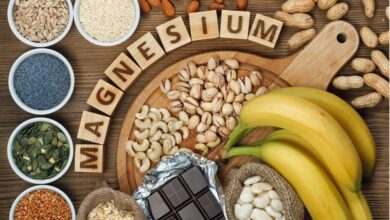Hormone Balancing tea: Natural Ways to Balance Hormones
The Healing Power of Tea
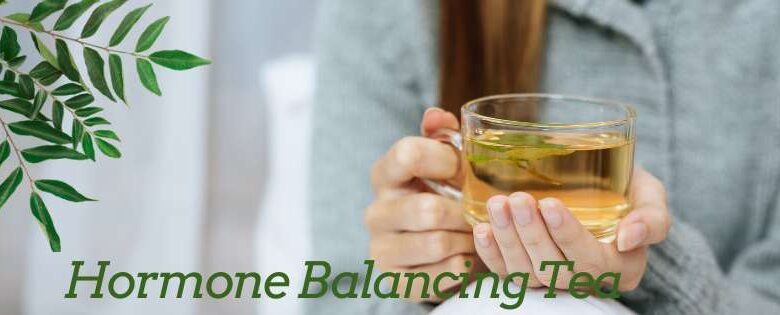
Hormone balancing tea is a type of herbal blend specially responsible for producing and controlling hormones. Hormone balancing tea also used to feel more energize and less anxious.
As in a recent blog post I shared 11 warning signs of Magnesium deficiency.
Now I thinking about other simple ways we can make to support hormone balance, and this time I can’t think of a better choice than tea.
In addition to its cultural and medicinal value, tea has been used for thousands of years for its health benefits. The numerous health benefits of tea are constantly changing as our understanding expands.
Matcha/Green tea
Matcha is a type of green tea that can used as hormone balancing tea in lots of ways! First of all, it can relieve infection and high insulin levels, just like ginger.
It also helps decrease stress hormone levels and boosts your complete liver health! Since the liver is necessary for hormone production and management, a healthy liver is essentials to keep hormone levels on track.
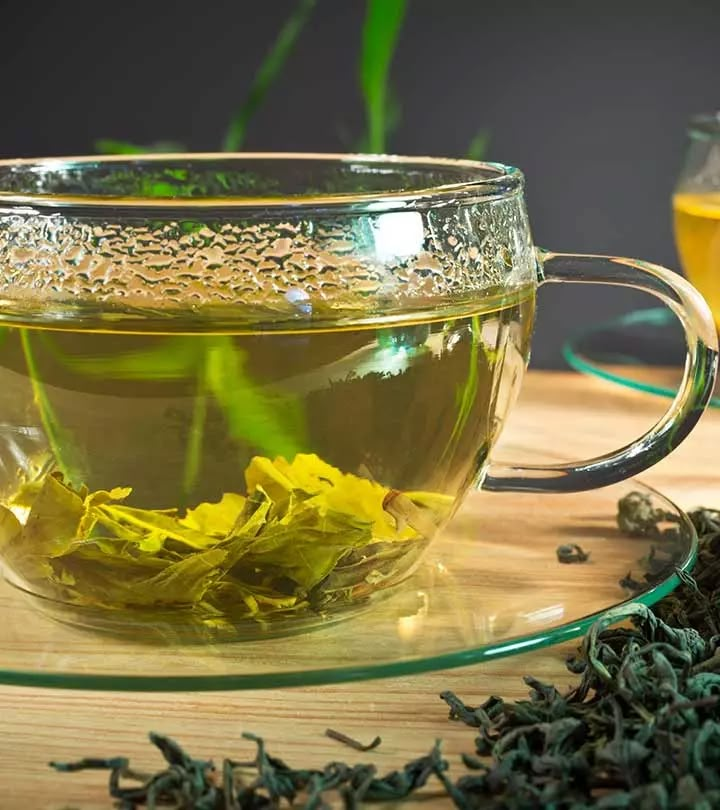
Matcha has a high antioxidant content to improve the health of endocrine glands, which are also essential for hormone production and regulation.
Matcha is having a moment – and for good reason. It’s delicious and great for your health.
Matcha is the crushed version of a specific type of green tea leaves.
It also contains a stronger concentration of other important nutrients and antioxidants that are found in regular green tea.
You Know I switched my daily cup of coffee to matcha and it has been a game changer for my hormones!
Red Raspberry Leaf Tea
Red raspberry leaf tea is famous for its health benefits for women, mainly because of its rich antioxidant and tannin content.
Raspberry leaf tea is also known to help relax the uterine muscles which can give comfort to menstrual cramps. As it is hormone balancing tea so it can also improve other PMS symptoms like nausea, vomiting and diarrhea.
Many women use red raspberry leaf during pregnancy to reduce morning sickness and strengthen the uterine muscles.
According to a research study, consuming raspberry leaf tea may increase milk supply and boost the antioxidant content of breastmilk. It’s notify that the women in this drank a tea blend that contained raspberry leaf tea in combination with other herbs like fennel and hibiscus.
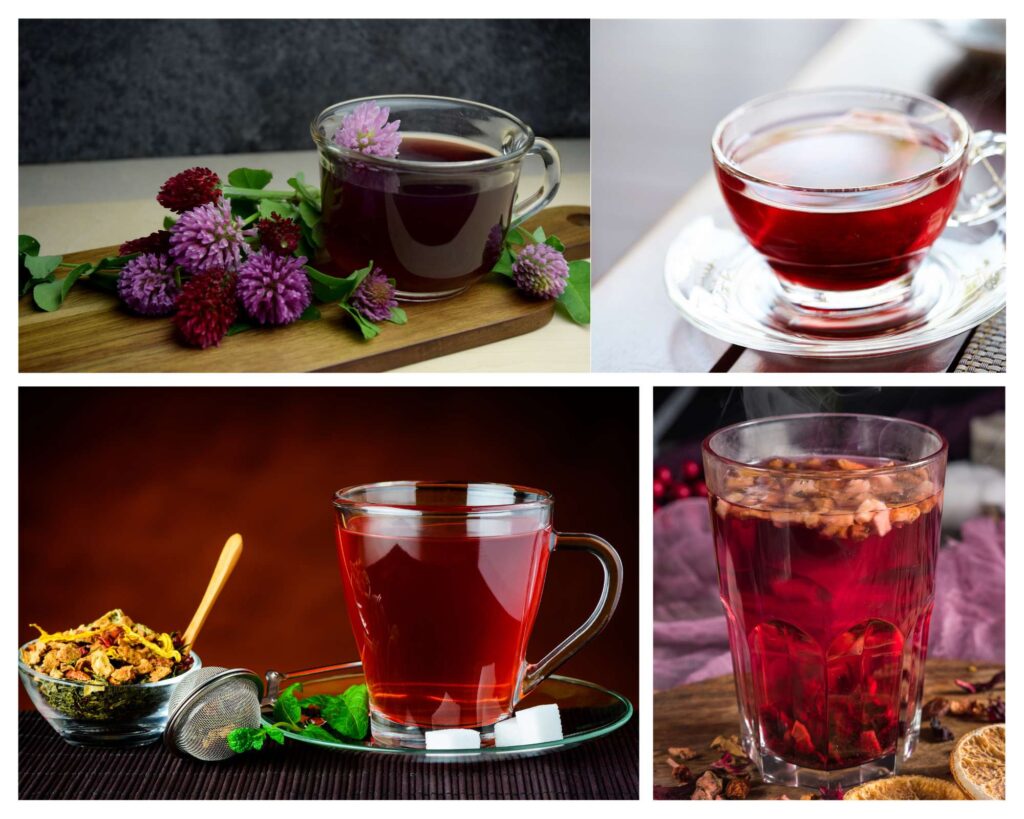
Milk Thistle Tea
Milk thistle contains a compound called silymarin that helps the body break down estrogen and supports the liver so it can metabolize and remove the leftover from the body. This supports hormone balance by keeping estrogen levels healthy and prevents symptoms of estrogen dominance.
Milk thistle is Hormone Balancing tea considered a bitter herb that supports gut health by stimulating digestion, making it a great choice before or after meals to support healthy digestion too. A healthy gut means healthier hormones!
Milk thistle tea is another great tea option to promote liver functioning.
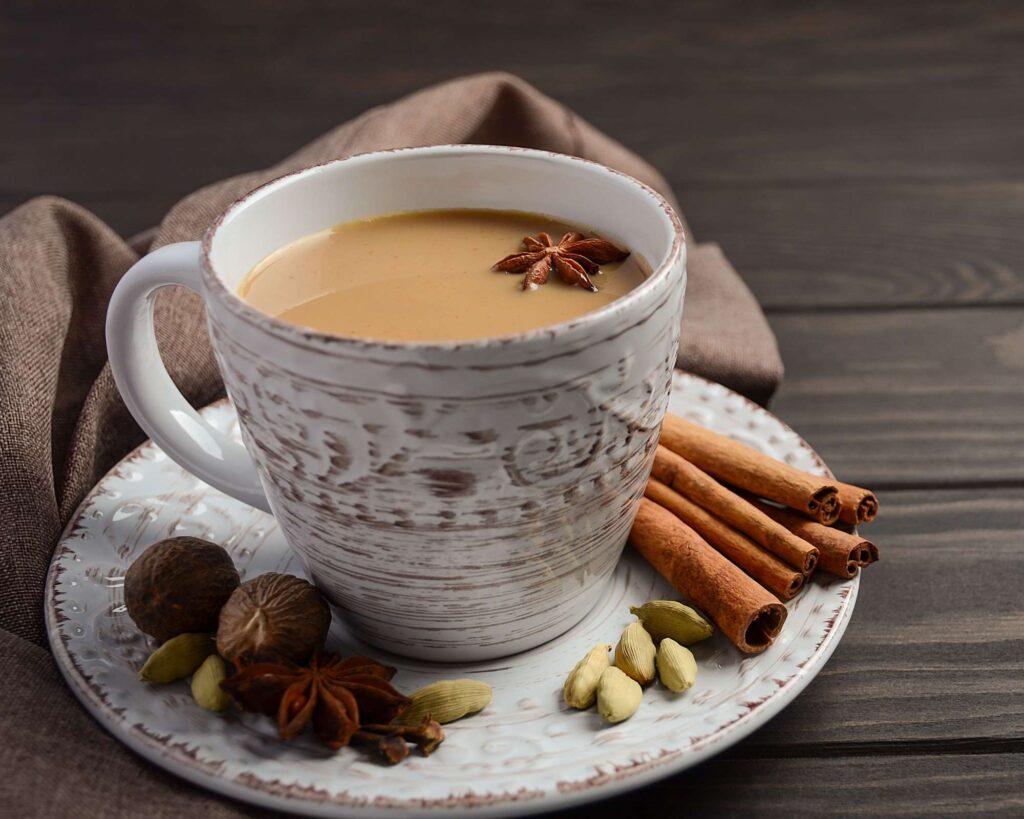
Passion Flower Tea
Passion flower is commonly used as a natural remedy for anxiety, stress and sleep. Because hormone balance is negatively impacted by long-lasting stress and poor sleep, it may indirectly support healthy hormone balance, especially of the stress hormone, cortisol.
Passion flower is Hormone Balancing tea also contains antioxidants that help fight oxidative stress and reduce irritation, supporting overall hormone balance.
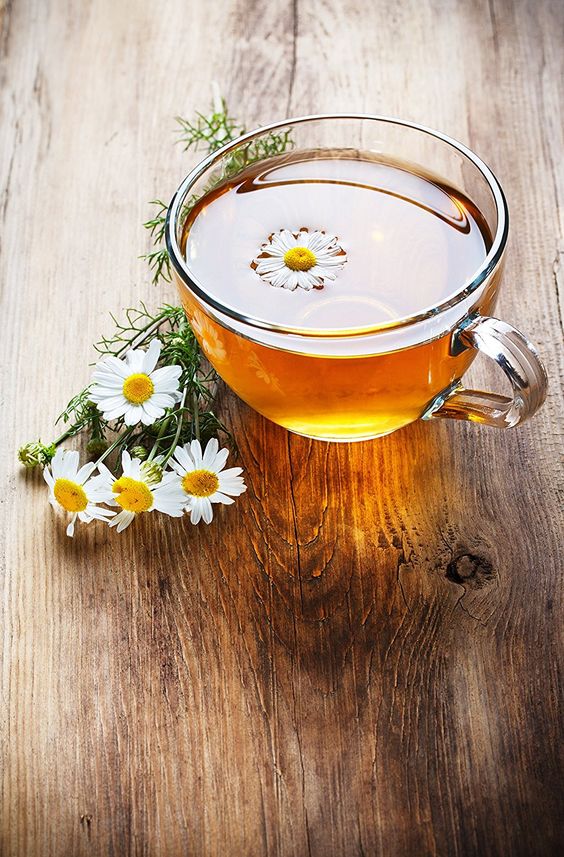
Red Clover Tea
Red clover is rich in compounds that are similar in structure to human estrogen. These are considered phytoestrogens, meaning they have mild estrogenic effects and can ease symptoms associated with low estrogen.
Red clover has also been shown to relieve symptoms of menopause like hot flashes and night sweats. Estrogen plays a role in maintaining bone density, and during menopause.
The phytoestrogens in red clover may provide a mild estrogenic effect that can support bone health in postmenopausal women.
Red clover is Hormone Balancing tea also contains anti-inflammatory and antioxidant compounds that can contribute to overall hormonal balance.
Hibiscus Tea
Hibiscus is a rich source of antioxidants and polyphenols which help deactivate free radicals, reduce oxidative stress and lower inflammation in the body. By reducing inflammation, hibiscus may support a healthier hormonal environment.
Hibiscus is also known for its liver-supporting effects and since the liver is responsible for hormone metabolism, it can be beneficial for hormone balance.
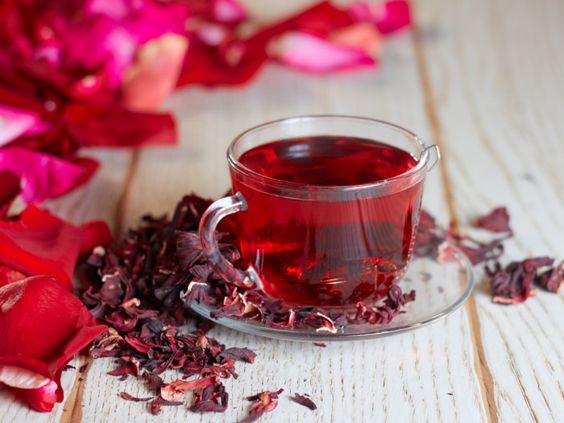
Other studies have found hibiscus improves markers of metabolic syndrome affected by blood sugar issues. The anti-inflammatory properties of hibiscus are the likely aim behind its ability to improve insulin sensitivity, making glucose metabolism more effective.
Spearmint Tea
Spearmint tea has been studied for its ability to positively affect androgens, which are often elevated in women with PCOS. Both men and women make androgen hormones, but women are supposed to make them in small amounts and if they make too many it contributes to unpleasant symptoms like hirsutism (excessive hair growth) and acne.
Some studies suggest that spearmint tea has anti-androgenic effects, meaning it may help reduce high levels of androgens in the body. This has the power to regulate menstrual cycles, reduce excess hair growth, and clear up acne if high androgen levels were to blame.
Spearmint tea has been shown to have anti-androgenic effects. It is recommended to drink 3 cups of spearmint tea per day to see the anti-androgenic effects
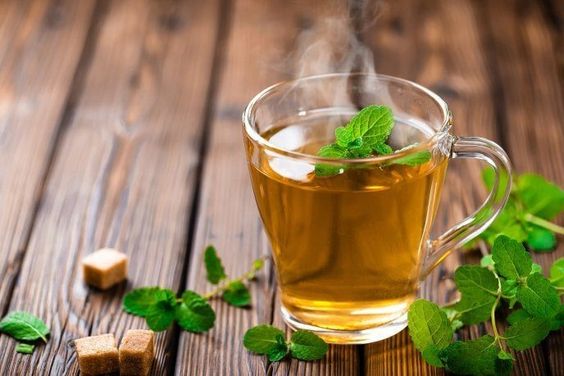
Ginger Tea
Ginger root is well-known for its anti-inflammatory and pain-relieving effects, reducing the flow from heavy pain. Ginger is effective for period cramps and can reduce nausea and vomiting during pregnancy.
Starting your morning with warm ginger tea is a great way to rehydrate your body, soothe your digestive tract, and support hormone balance.
Ginger tea can indirectly improve hormone levels by reducing inflammation. Inflammation puts your whole body in fight-or-flight as your immune system attacks your healthy cells. High insulin resistance can disturb hormones, causing symptoms like lowered immunity, fatigue, digestive issues, skin problems, and mood swings.
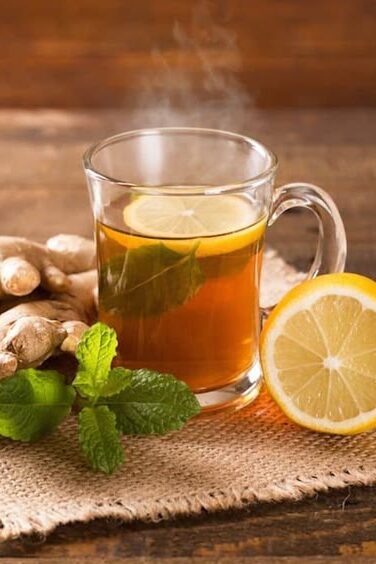
Lemon Balm Tea
Lemon balm is a relaxing herb that helps to relieve symptoms like cramping, water retention, insomnia, anxiety and irritability.
This tea is particularly beneficial for supporting mood, and helps women feel calm and relaxed.
Lemon balm herbal tea has a more indirect impact on hormones, but it can still help support your health goals.
Studies show that lemon balm tea can have a calming and stress-reducing effect.
Stress produces a hormone called cortisol that can send lots of hormones out of whack! High cortisol can also worsen inflammation and insulin resistance. Stress management is super important for your healing journey and it seems lemon balm tea can help!
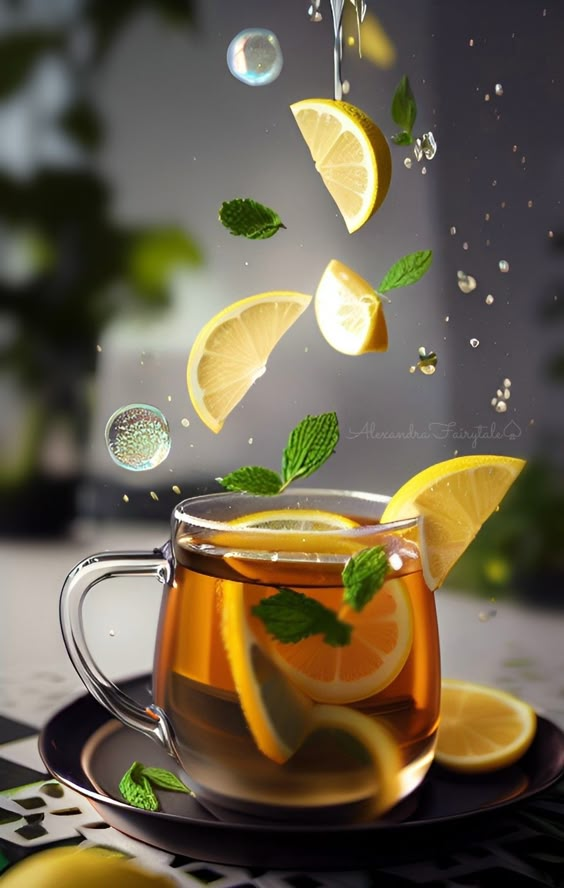
Final Thoughts
Regularly drinking hormone-balancing teas not only supports hormone balance, but has the added benefit of increasing your antioxidant intake, decreasing inflammation, and supporting gut health and detoxification.
Don’t feel like you need to include all of these at once. Pick one to start with based on your body’s needs and build from there.
Keep in mind that the tea you want now may not be the tea you need in three months – it’s normal for your body’s needs to change!
Now tell me what’s your favorite tea from these mentioned above?

